Members of a Chinese military honor guard © Wikicommons
My Chambers dictionary defines democracy as “a form of government in which the supreme power is vested in the people collectively and is administered by them or by officers appointed by them.” Based on the evidence to hand, this would not be a definition that would be recognised by the Chinese Communist Party (CCP). They seem to favour a form of government in which supreme power is vested in the General Secretary of the Communist Party and his indisputable rule must never be questioned in any way, anywhere. This determination doesn’t merely stretch across China itself; Beijing seems to believe it has the right to censor content and even ban the exhibits of art galleries across the entire world, including Europe. In China itself, the CCP has a list of words that cannot be used in case they are used to criticise the party or its officials. Among the many attempts to control discussion worldwide, it tried to ban an exhibition of work by the Chinese-Australian artist and dissident, Badiucao, in the Italian city of Brescia. The exhibition went ahead anyway, thanks to the courage of Brescia’s mayor, Emilio Del Bono, who told the New York Times: “Art should never be censured”.
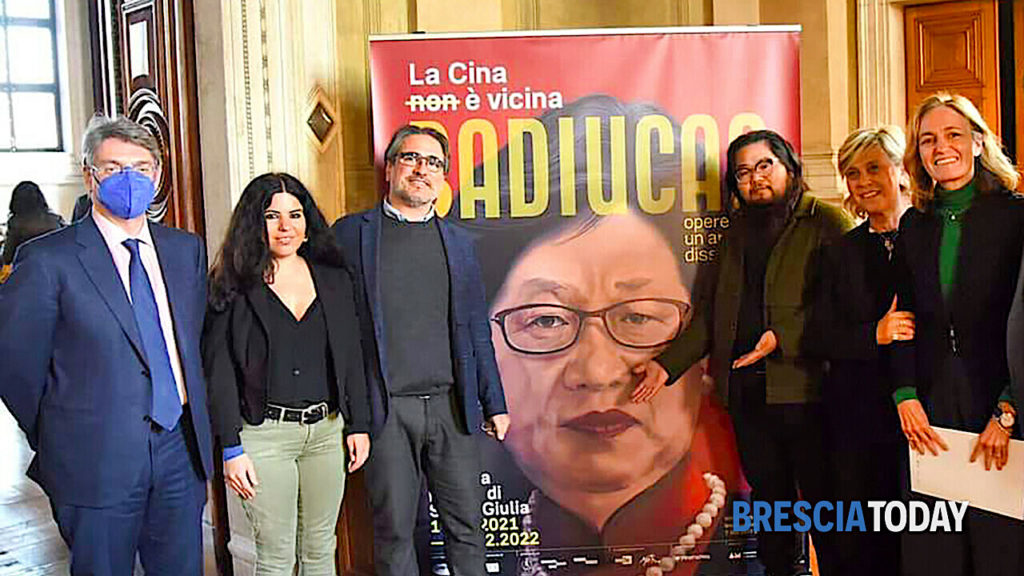
Badiucao’s work has often been critical of the Chinese government, highlighting human rights abuses that the CCP denies ever having happened. According to the CCP, there never was a massacre in Tiananmen Square in 1989, yet they issued watches to the soldiers who put an end to the protest, inscribed “to commemorate the quelling of the rebellion”.
Badiucao, a recipient of the Václav Havel International Prize for Creative Dissent, has used paintings of the watches in his art and fully expects further harassment by a government determined to re-write history in its own favour, omitting all the nasty bits. The nasty bits include imprisonment for speaking out about human rights abuses, such as China’s treatment of the Uyghurs.
Or, indeed, any comment that could, in someone’s imagination, be thought of as criticism of the apparently infallible General Secretary, Xi Jinping. In December 2021, the only memorial to the event, in which thousands may have died, was removed. It was a tall sculpture which stood in the grounds of Hong Kong University and the BBC were denied the right to film its removal, although they tried. This is an example of Beijing’s gaslighting technique: if something is embarrassing to the CCP, then it simply didn’t happen; it is erased from history and if you remember it, you’re mistaken.
China has a growing market for art and Badiucao fears that this fact will discourage institutional galleries around the world from permitting his work to be exhibited. “Authoritarian governments are always trying to control artists,” Badiucao told Artnet News. “The Chinese government is using the art market as a tool to stop artists like me.” But as The Economist reported in December 2020, China uses bullying as a tactic because it seems to work: “Once told that they have crossed a ‘red line’ by harming China’s interests or calling out its misdeeds, many governments crumble swiftly.
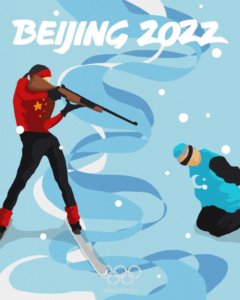
Others fold after suffering months of threats, trade boycotts and cancelled official meetings.” The article goes on to accuse delegations from Western governments of swiftly giving in to China in trade or other discussions: “They bow to China’s mix of market power, geopolitical importance and ruthlessness.” It may be the ruthlessness that frightens them most. This becomes increasingly important as the Winter Olympics draw near, to be hosted, of course, by China. By the time you read this, they may indeed be history (they run from the 4th to the 20th of February), but don’t expect that history to include a mention of any protests that may be staged during them. In Beijing’s view, they will simply not have happened.
China can now boast the world’s largest economy, bigger than that of the EU, for instance, and it has even overtaken the United States. No wonder the governments of smaller nations are nervous. In the school playground, if the largest boy there wants to bully smaller people, few are in a position to stop him. Incidentally, school bullying seems to be on the increase in China, according to the National Library of Medicine, an American website: “The incidences of reported bullying, bullying others and witnessing bullying are 26.10%, 9.03% and 28.90%, respectively.
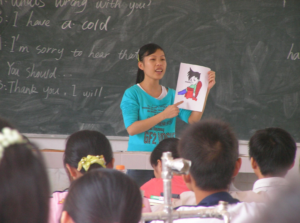
Primary school students are more likely to be involved in bullying behaviours. Students from elite schools (leading schools) are also more likely to be involved.” But, of course, kids learn from their elders, don’t they? The top schools reveal that China’s very intensive educational system is not so egalitarian as most people might imagine. According to the CKGSB website: “Newly-affluent Chinese families, desperate for a good education for their children, are willing to pay top dollar for a quality alternative. Tuition at private schools ranges from 250,000 RMB (which stands for Renmimbi, or People’s Currency and equates to €35,500) to 500,000 RMB (€69,000) per year. (China’s per capita GDP in 2015 was $8,000, or just over €7,000).) Private schools and tutoring institutions are mushrooming in response to demand.
In dealing with China, don’t go showing any pictures of Winnie the Pooh; Xi is sometimes depicted (by very brave people) in the character of the “bear of very little brain”, although the physical resemblance requires a certain stretch of the imagination.
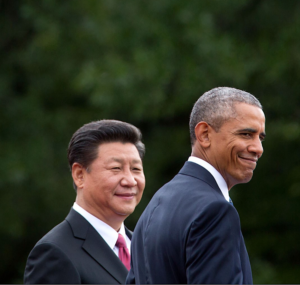
The disapproval mainly seems to stem from a photograph of Xi walking next to the then US President, Barrack Obama, in which their movements match those in a book illustration of Pooh Bear walking next to the much taller tiger figure, Tigger.
The resemblance is, in this case I confess, uncanny and most world leaders would have shrugged it off as a joke, or even as a compliment. Xi and his apparatchiks, however, are very thin-skinned indeed and seem to over-react to the tiniest slights, even imagined ones. Apparently, Pooh Bear was based on the teddy bear of children’s author (and creator of the Winnie the Pooh stories) A.A. Milne’s own son, Christopher, just as other inhabitants of the ‘Hundred Acre Wood’ were based on the boy’s various soft toys. There was nothing political about them.
HOWEVER TRUE, CHECK WITH BEIJING FIRST
Over-reaction seems to be a hallmark of China’s international relations. Take the case of little Lithuania, a charming country and a member of the EU. It provoked Beijing’s Ire by permitting a Taiwanese embassy to open. China won’t accept the existence of what it sees as a part of China having official recognition in its own right anywhere in the world. Instead of a written rebuke, however, China downgraded diplomatic relations with the Baltic state, began to block imports and even put pressure on a German maker of car parts (and a few others) to stop using Lithuanian products in their output.

It seems little bit like finding a mouse behind the skirting board and burning the whole house down to get rid of it. President Biden decided to ban the import of goods from Xinjiang because of allegations of forced labour, but companies that followed this law were loudly condemned in China and accused of racism, bullying and hate crimes. Intel decided to abide by Biden’s ruling, writing on its website: “Intel is required to ensure our supply chain does not use any labor or source goods or services from the Xinjiang region”. It caused fury in China, being described by the party newspaper, the Global Times, as “arrogant and vicious”, although it’s hard to see how anyone familiar with the English language could apply either word in this case. They are simply inappropriate adjectives. Intel caved in without demur, posting an apology for “the trouble caused to our respected Chinese customers, partners and the public.” It seems to be a somewhat mealy-mouthed acquiescence.
National Review, an American website, was incensed: “Why don’t we consider China’s small acts of tyranny, such as its corporate intimidation, to be similarly threatening?” it asked. “After all, they make space for the very large acts of tyranny, for instance, the system of sterilization, internment, and forced labor inflicted on an entire culture in Xinjiang.” Think you can avoid upsetting China by using a mobile phone? Not if it was one made in China, apparently. Lithuanian investigators allege that the phones contain a hidden ‘blacklist’ of 449 terms banned by the CCP.
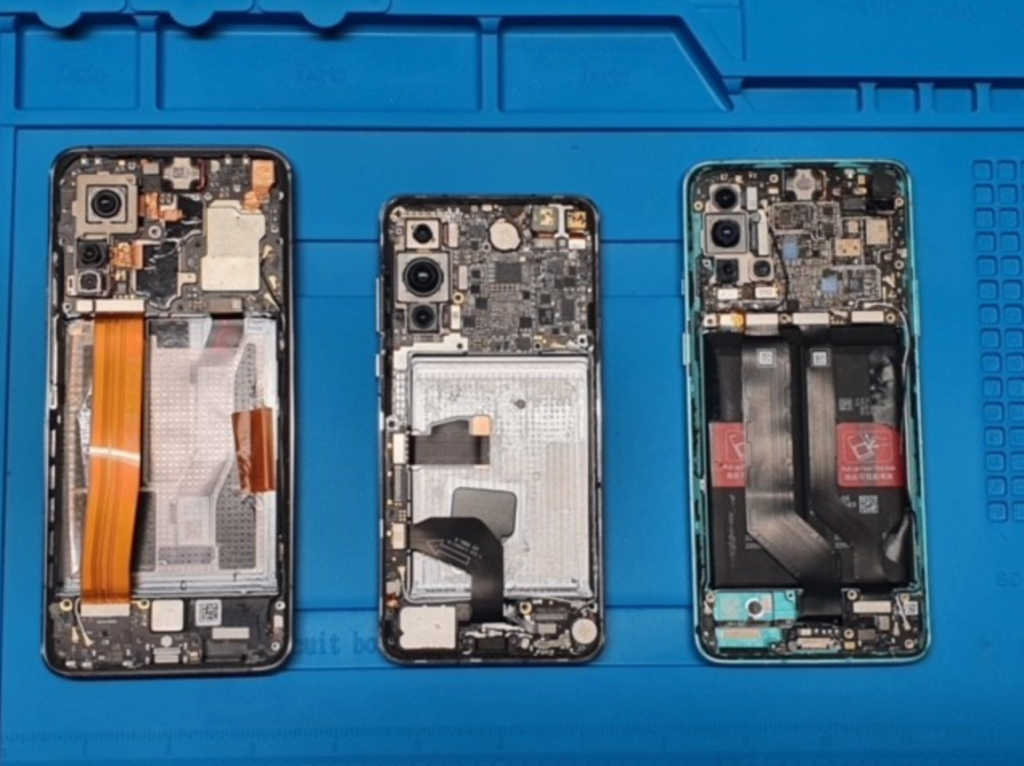
The claim is that the blacklist remains dormant until someone in China operates a switch. The claim has been firmly denied by the phones’ manufacturer, Xiaomi. However, the Lithuanian government takes it seriously and has instructed government offices to junk the phones. The advice was dismissed by The Global Times as “a new trick” by what it called “a small pawn” in Washington’s attempts to damage China and Beijing has stepped up its pressure on Lithuania to capitulate.
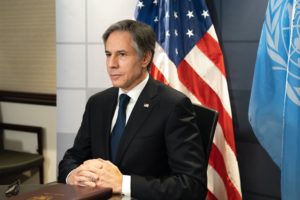
It has stopped a regular cargo train to Lithuania, increased the bureaucratic nonsense for anyone exporting to China and, most seriously, it has blocked the flow of Chinese-made glass products required by some Lithuanian manufacturers, blaming “power cuts”. So far, China’s actions haven’t swayed opinion; Lithuania remains pro-Western and firmly against Communist China. China especially dislikes Lithuania because it was the first Soviet state to break away from the Soviet Union, and Beijing fears it could set a precedent. But if a Baltic minnow like Lithuania, with a population of fewer than 3-million people and an economy only 1/270th the size can stand up to the mighty dragon that is Communist China, why can’t larger countries that Beijing has targeted? Interestingly (or perhaps not) US Secretary of State Antony Blinken has pledged “ironclad US support for Lithuania in the face of attempted coercion from the People’s Republic of China.”
The fact is that China’s bullying tactics remind the Lithuanian people and others a little too closely of what the Soviet Union tried (unsuccessfully) to do when Lithuania sought to go its own way.
GASLIGHT SERENADE
The Chinese government engages in an activity now known as ‘gaslighting’, in which truths are subverted and half-truths are promulgated as the only correct version. Everything else is the result of your failure to comprehend or remember properly. The word comes from the stage play ‘Gas Light’ by English playwright Patrick Hamilton, which ran for a very successful six months at London’s Apollo Theatre in 1938 before going on to a record-breaking 4-year run on Broadway under the changed name, ‘Angel Street’. It was also made into a successful and terrifying film in 1944 by George Cukor, starring Charles Boyer, Ingrid Bergman and Joseph Cotten. According to the Medical News Today website, “Gaslighting is a form of psychological abuse where a person or group makes someone question their sanity, perception of reality, or memories.” The term ‘gaslighting’ used to refer to abuse in personal relationships in which one partner tries to persuade the other not only that they’re wrong but also that they’re stupid ever to have believed otherwise. It’s a form of coercion between romantic couples that can be very dangerous to the victim’s mental health. Nobody in the West is actually suffering a mental breakdown because of the CCP’s activities, but a surprising number of enterprises have backed down rather than face Beijing ‘s wrath (and risk losing trade, presumably).

China has now created what have been described as ‘censorship factories’, companies employing mainly young college graduates to trawl every media source, however minor and unimportant, on a never-ending search for words, references or phrases that could be construed, however obliquely, as critical of Xi or the CCP. For a country that has banned references to A.A. Milne’s children’s book, it’s never hard to find something the CCP won’t like. It’s finding something they do like that is sometimes difficult, although you may get away with saying what a wonderful and faultless chap Xi Jinping is, as long as you do it respectfully.
China, of course, denies accusations of forced labour in Xinjiang, or of using the labour of Uighurs detained in camps and detention centres. China has claimed that attendance in the camps is ‘voluntary’ and intended to be educational, turning people away from terrorism. If it’s voluntary, why do the camps have tall concrete walls, topped with barbed wire, and guard towers at the corners?
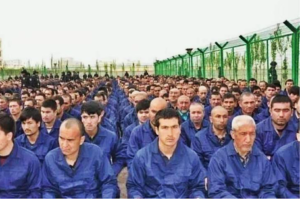
Why are there accusations of beatings, torture, forced sterilization and mass rape, not to mention strong attempts to eradicate Uyghur traditions and heritage? Former officials in the Trump administration claim that China is committing ‘genocide’ in these supposed ‘vocational training centres’. There had been reports of internees suffering hours of political indoctrination, of food deprivation, sleep deprivation, forced sterilizations, abortions and gang rapes in hugely overcrowded cells, with toilet facilities restricted to just a few minutes a day. Of course, it could be argued that it’s just American anti-Chinese propaganda – Trump disliked all foreign regimes, after all – and that the Uighurs are all happy with their lot. But there is no evidence that this is so, nor does the CCP seem keen to change western minds by revealing what they are really like. One can understand governments that fear a possible radicalisation of their Muslim populations taking steps to prevent it, but there is no proof that this is what has been happening in Xinjiang.
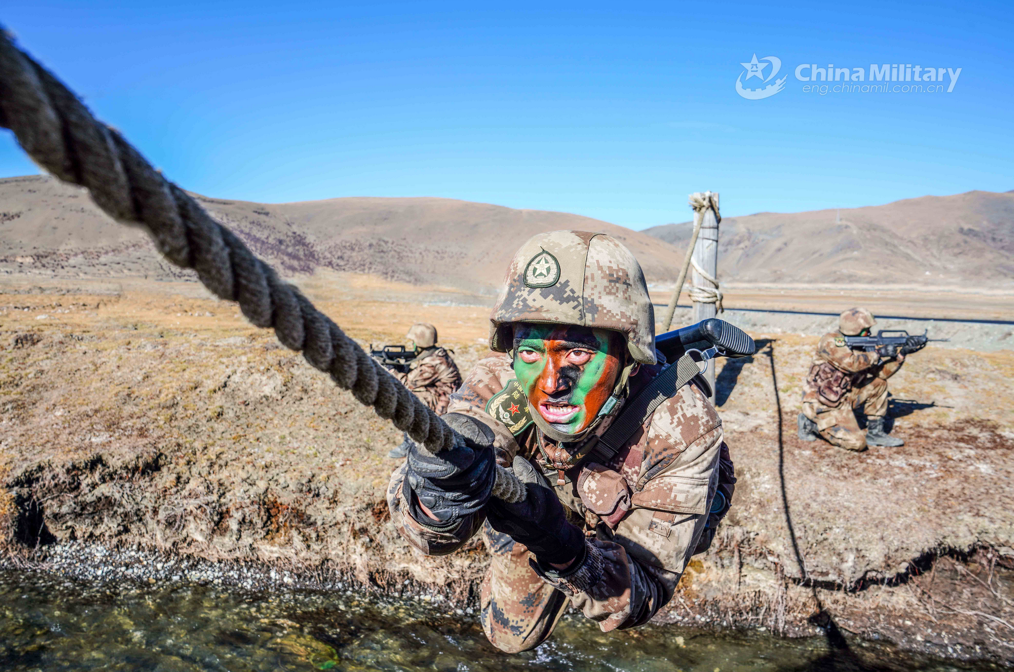
If everything is so wonderful there, why is Beijing not inviting deputations from the West to visit these “voluntary educational” establishments to witness for themselves the good work going on there. Why can’t Western diplomats visit and chat to the happy Uighur workers swapping jokes on the factory floor? Instead, any suggestion that things may be as bad as the rumours suggest is met with tit-for-tat sanctions, travel bans against EU and US politicians who, if they gave a clean bill of health, would remove the shadow hanging over the labour force in parts of China. Instead, the CCP has accused the EU of “grossly interfering” with its internal affairs.
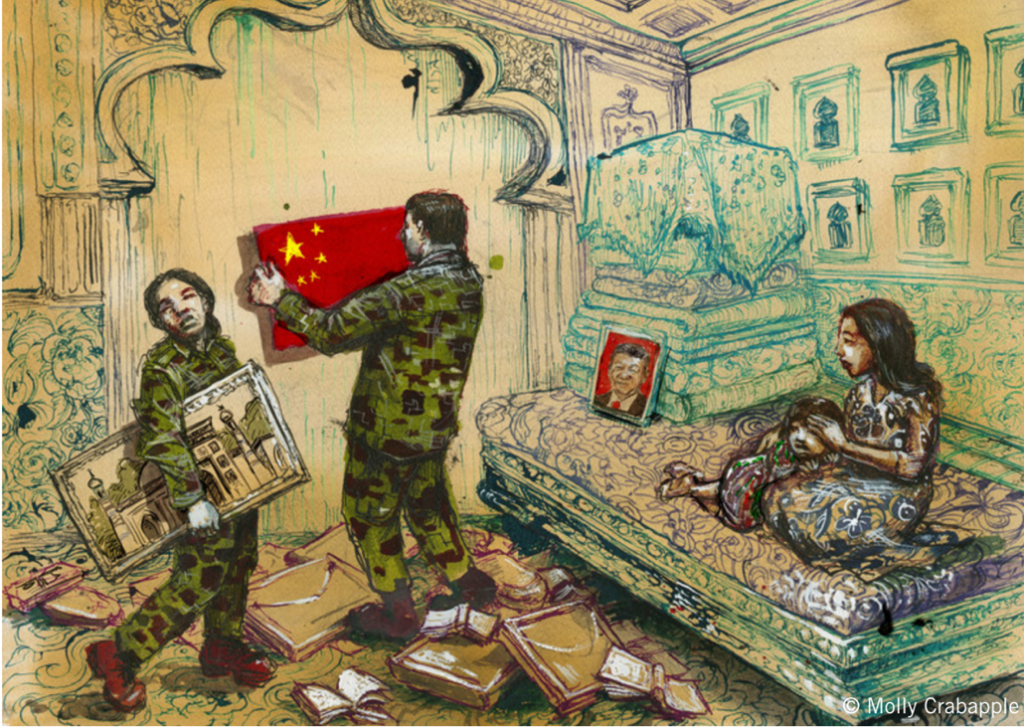
Al Jazeera reported China’s anger at the accusations: “China’s Ministry of Commerce has expressed ‘strong dissatisfaction and firm opposition’ to a United States ban on imports from Xinjiang region. The ministry described the US action as ‘economic bullying’, state news agency Xinhua reported.”
FAR, FAR AWAY
Xinjiang is a landlocked autonomous region in Western China that is home to almost two million people, many of them Muslims. It is also very large, covering 1.6-million2 kilometres, from the Tibetan plateau in the south-east to Kazakhstan at its north-western border. Known for many years simply as Xiyu, which means ‘western region’, the area became known as Xinjiang (New Borders) when it was annexed to China under the Qing (Manchu) Dynasty the 18th century. Being cut off from the sea and surrounded by tall mountains, it has a dry continental climate with unpredictable and uneven rainfall. The people have become very well-practised in water conservation as a result. It is home to some forty different ethnic groups, the most numerous of which are the Uyghurs, who form the majority population, and the Han Chinese, although there are also Hui (Chinese Muslims) as well as Mongolians, Kazakhs, Uzbeks, Khalkha, Manchu, Tajiks, Tatars, Russians and Tahurs. The region is wealthy in terms of its natural resources, with coal, iron, zinc, chrome nickel and copper, as well as molybdenum and tungsten, but most significantly, perhaps, it is rich in oil and natural gas. It’s easy to understand why the region is important to the CCP, in view of its natural wealth and its strategically important position as ‘Gateway to Central Asia’, with Kazakhstan, Kyrgyzstan, Tajikistan, Afghanistan, Mongolia and Russia on its border and with India and Pakistan to the south. It is also central to China’s famous ‘Belt and Road Initiative’ (BRI) having once been on the ancient Silk Road.
But its majority population, the Uyghurs, have a very distinctive culture of their own and speak a language closely related to Turkic. You will not find many Uyghurs saying or writing: “我是中国人 (in Pinyin: “wǒ shì zhōngguórén”), which means simply “I am Chinese”. After all, they consider themselves to be Uyghurs first and foremost. There again, even the great Mao Zedong spoke the Hunan variety of Mandarin, Xiang, rather than the language of Chinese government and recordings of his speeches display a strong Hunan accent.
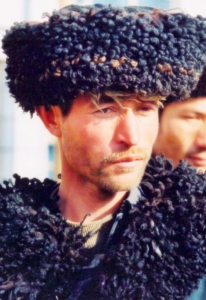
In fact, it’s believed that there are 297 living languages spoken in present-day China, but of its 1.21-billion people, the greatest number – an estimated 955 – speak the official language, Mandarin. The Uyghurs don’t converse in Mandarin, and, of course, most of them are Muslims. They also claim that the many state-controlled industries in the region discriminate against them when it comes to employment. After riots in the regional capital, Urumqi, in 2009, in which almost 200 people died, China clamped down on Xinjiang and especially its Muslim population, banning the wearing of veils, long beards and the use of Islamic names. It also cracked down on Quranic studies and prevented Muslim officials from observing the Ramadan fast. There were other repressive measures, too. One of the great architects of the Russian Revolution, Mikhail Bakunin, who was a Communist, revolutionary and founder of what is called “collectivist anarchism”, wanted to overthrow the Tsarist regime and had no truck with capitalism, but I cannot imagine him liking the CCP much, either. He once wrote “All submission to authority humiliates; all exercise of authority perverts.” Try telling that to Xi Jinping. Back in the early 1970s, Bakunin’s words appeared as graffiti along a canal wall in Walthamstow, which is in the east of London. It was a time of much poetic graffiti in the UK, but nobody seemed to take much notice of the messages. My favourite was on a wall at Paddington Station, London, reading “Far away is near at hand in images of elsewhere”. Nobody knew exactly what it meant, nor who had written it (one newspaper always referred to him – if it was a ‘him’, and not a ‘her’ – as “the Master of Paddington”) and the wall was demolished long ago.
UP CLOSE AND PERSONAL
China does not restrict its activities to its homeland. It has agents who are active worldwide. In the UK, a story broke in January about the CCP’s attempts to bring influence to bear within the political establishment. Britain’s domestic security agency, MI5 (supposed employer of James Bond in the popular spy books of Ian Fleming) took the very rare step of issuing a written warning to the Speaker of the House of Commons, to be relayed to all Member of Parliament, about the activities of a Chinese lawyer, Christine Lee. She had cosied up to several politicians and had even donated more than £600,000 (almost €720,000) to a former Labour Party front-bencher and still a sitting Labour MP, Barry Gardiner, and £5,000 (roughly €6,000) to the constituency office of Sir Ed Davey, MP, who currently leads the Liberal Democrat party.
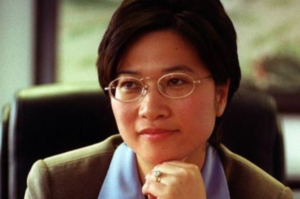
Davey travelled to Beijing six months later. He was a member of the Cabinet, serving as Energy Secretary, and he was negotiating deals to fund Britain’s nuclear power programme at the time. Lee also became friendly with the then Prime Minister, David Cameron, and even received a letter of thanks from his successor, Theresa May. Lee’s son, Daniel Wilkes, worked in Gardiner’ office, although he resigned as soon as news of the MI5 letter became known. MI5 described Lee in the letter as “an agent” of United Front Work Department, believed to be a part of the CCP engaged in overseas influence and coercion. MI5 wrote that her aim was “to cultivate individuals with the goal of promoting the CCP’s agenda and challenging those that do not agree with its principles.” According to MI5, Lee was targeting a number of influential politicians who have yet to be named, if they ever are. The recipients of Lee’s largesse should perhaps have remembered the words of the great Greek dramatist, Sophocles: “Enemies’ gifts are no gifts and do no good.” The recipients of Beijing’s generosity will find come under investigation by MI5.
So where has Beijing been spreading its cash? The UK has been the major beneficiary, receiving more than £50-billion (roughly €60-billion), but China has been investing in Nordic countries (especially Finland), as well as Portugal, Luxembourg, and Malta, which have benefited from very large contributions considering their small size. In return, China expects to have complete control over what it sees as its territory, on land, sea and air. The ‘.coda’ website mentions the fury Britain aroused in China when Britain sailed its largest warship, HMS Queen Elizabeth, through the South China Sea. It was its shortest route and only involved entering what is regarded (outside China, at least) as ‘international waters’. The massive aircraft carrier had American warplanes on board and the flotilla it led included a Dutch warship. Beijing was furious. “China receives friends with good wine,” said political commentator Wu Shicun, “and deals with wolves with a shotgun.” Not the most pacifistic of messages from a country that claims to want peace. However, no shotguns were produced, and the vessel sailed through.
Meanwhile, China seems to be trying to reboot its relationship with the EU, with Foreign Minister Wang Yi visiting his Finnish opposite number, Pekka Haavisto, whose often-expressed concerns over human rights didn’t get a mention in China’s version of the meeting. As we’ve seen before, what China doesn’t like didn’t happen. Their policy seems to revolve around the idea that whoever controls history controls everything. Meanwhile, China is the biggest manufacturing economy in the world and the biggest exporter of goods, as well as having the fastest-growing consumer market in the world and being the second-largest importer of goods. It’s the world’s largest trading nation, too. According to the ‘The National Interest’ website, the latest report from the IMF shows China’s economy ($24.2-trillion or €21.2-trillion) to be one sixth larger than America’s ($20.8-trillion or €18.2-trillion).
Maybe Beijing believes that sheer size overrides such matters as honesty and truth. Shortly after the EU blacklisted four Chinese officials linked to the alleged mistreatment of the Uighurs in Xinjiang, China imposed personal sanctions on European policymakers and think tanks, banning Chinese people and organisations from doing business with them and banning the named individuals from entering China. China also took revenge on a clothing company, H&M, which disappeared from Chinese websites because it decided to stop using cotton from Xinjiang over the issue of forced labour. China’s response is invariably asymmetric, responding extremely vigorously to any reaction by foreign government over China’s policies.
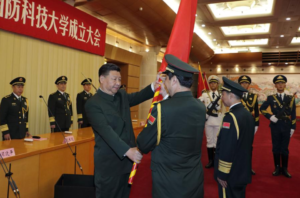
Criticism of China’s human rights abuses is seen as interference in its internal affairs, about which nobody must comment. For European companies that are active globally, China poses an enormous threat, according to the European Council on Foreign Relations. “China is able to bar companies from its market by adding them to its Unreliable Entities List on the grounds of posing a purported threat to Chinese security,” says the ECFR’s website. “But China also recently adopted a new export control law which has significant extraterritorial reach. Under this new law, European companies may have to ask Beijing’s permission to sell their products to other European firms or to third countries even if they are not for military use (as is American or European practice).” China has also introduced a ‘blocking statute’ to put further pressure on European businesses. “This law prohibits companies from complying with rules or sanctions imposed by other countries without stating which rules these are,” says the ECFR. “Much depends on how Beijing will apply this vague law, but the upshot is that European subsidiaries in China could now get into trouble if they comply with a European or US sanction or export control measures.”
TIME AND TIDE WAIT FOR NO MAN
China not only refuses even to acknowledge criticism, it also finds others to blame when the unexpected happens. For instance, it is now claiming that the Omicron variant of COVID-19 was brought to Beijing by a letter from Canada that was contaminated.
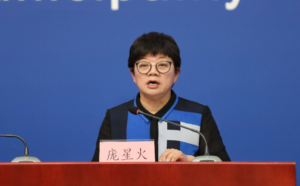
Pang Xinghuo, the deputy director of the Beijing Centre for Disease Prevention and Control, says the first person to be diagnosed with Omicron had received a letter, mailed from Canada on 7 January, which proved to be contaminated. She told the South Chinas Morning Post: “We do not rule out the possibility that the person was infected through contacting an object from overseas,” although her department’s official view is that letters and packages are unlikely vectors for virus transmission. China is especially sensitive to stories about the origin of COVID-19 because many fear it could have escaped from a Chinese laboratory, which Beijing firmly denies.
Is this repressive form of Communism something of which Mao would have approved? Almost certainly yes. His Red Army came down hard on any who deviated from his vision for China’s future. His war with Chiang Kai-shek, he told the writer Robert Payne over a dinner in Yenan, was won before it was engaged, since the nationalist Kuomintang failed to field their real military forces against the Communists, relying instead on various warlords who hated Chiang Kai-shek as much or more than they hated Mao’s Communists. “There was never a moment when we were not absolutely certain we would win through,” Mao told Payne. In Payne’s own recollection, Mao was a man of many different personalities. “He was the romantic revolutionary on fire with revolutionary ideas,” Payne wrote in his book, Eyewitness, “but he was also the retiring scholar and the calm spectator of events and the author of the opera which he had dreamed up during long, studious nights. He was a man playing several parts, and no-one would ever know what compulsion drove him to becoming so various.
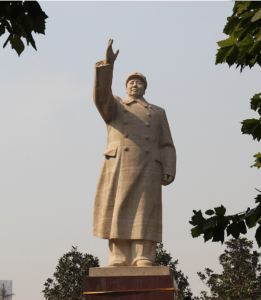
Scholar, revolutionary, student, military strategist, poet, propagandist – he was all these, but he was considerably more. Those soft hands held China in their steel-like grip.” Now, it’s the grip of Xi Jinping that binds his great country together and there is little sign so far that he is a visionary, as Mao was. It’s been said that Mao took no pleasure in killing or torturing people in his revolutionary cause, although the historian Lee Feigon recalled that he could be “draconian and authoritarian” when crossed, but he never sank to the villainy of his mentor, Joseph Stalin.
China is a hugely ambitious country that has proved itself unusually ruthless in its pursuit of global influence. It’s not the first country to use force, or the threat of force, to implement its global policies. Britain did much the same in the 19th century. It seems as if Western countries and businesses will have to learn to live with a new reality: to do business with China, don’t say or do anything they may take as an insult and never question their actions. Perhaps we should learn from the Florentine statesman and political philosopher, Niccolò Machiavelli, who wrote: “Since, then, a prince is necessitated to play the animal well, he chooses among the beasts the fox and the lion, because the lion does not protect himself from traps; the fox does not protect himself from wolves. The prince must be a fox, therefore, to recognise the traps and a lion to frighten the wolves.” But even the world’s greatest empires – the Roman, the Mughal, the Spanish and the British (and there are many more) are now just history. As the old saying goes, “Everything passes, everything perishes, everything palls.” Possibly even the CCP?
Toby Bowman-Grant
CHINA ACCUSES MEPs OF BEING TOO BIG FOR THEIR BRITCHES
Post script to “The Art of Coercion” by Toby Bowman-Grant
Relations between the CCP and Europe have deteriorated further since I wrote the body of this article. The European Parliament has come in for direct criticism for daring to comment on Beijing’s attitude to what Chinas calls “the Hong Kong Special Administrative Region”. You may recall at the time Britain handed over Hong Kong to China (and not before time!) that China promised to retain the same style of governance. It was always a promise they had no intention of keeping, instead inflicting the sort of restrictive government the CCP favours, in which nobody ever criticises the government. It’s something the Papacy tried in the Middle Ages and it has never worked, at least not for long.
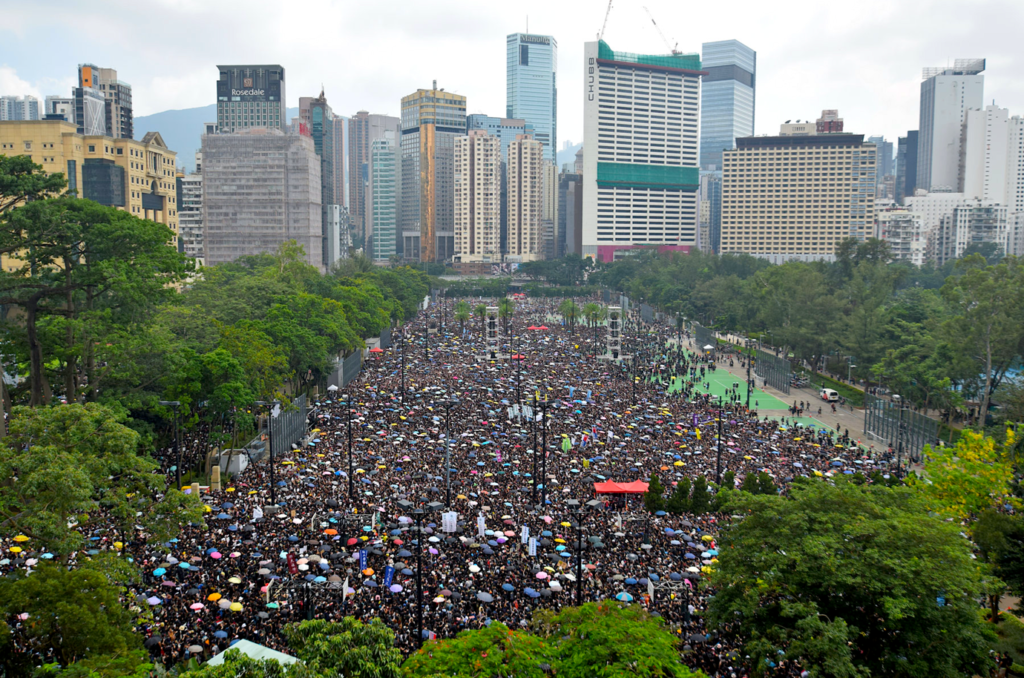
The European Parliament voted to condemn “the deterioration of human rights in Hong Kong” and urged the European Council to introduce targeted sanctions against targeted officials, going as far as to urge the Chinese government to repeal the National Security Law for Hong Kong. It’s hardly a surprising point of view from a body committed to human rights but it has infuriated the Chinese, who seem unable to accept any criticism whatever. A Commissioner of the Chinese Foreign Ministry said that politicians should stop what he called ‘political hysteria’ against China and Hong Kong. MEPs also demanded diplomatic and political boycotts of the forthcoming Beijing Winter Olympics, but a CCP spokesman called it “a publicity stunt” and a “self-deceiving political farce”. China invariably dismisses any criticism of its very flawed system, and this time it urged MEPs to stop meddling in what it sees as China’s internal affairs. Presumably its broken promises on Hong Kong’s governance should simply be forgotten? It accused MEPs of being “too big for their britches”.
Meanwhile, China has persuaded Australian tennis authorities to ban fans from wearing t-shirts bearing the slogan “Where is Peng Shuai?’, a reference to the Chinese tennis star who seems to have disappeared since accusing a senior CCP official of sexual assault. This has led to accusations that the Australian authorities have caved in to Chinese bullying. It has drawn strong criticism from global tennis star Martina Navratilova, who has condemned the decision as “pathetic”. It begs the question: will Chinese officials ever realise that such criticism will go on until Beijing wakes up to the need for better human rights and much less repression?

